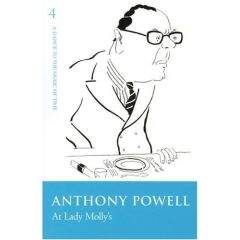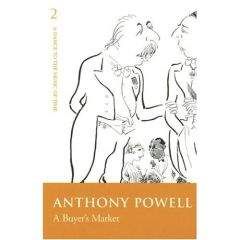Anthony Trollope - Autobiography of Anthony Trollope
an effort of the reader;--and not only some proposition of meaning,
but the very sense, no more and no less, which the writer has intended
to put into his words. What Macaulay says should be remembered by
all writers: "How little the all-important art of making meaning
pellucid is studied now! Hardly any popular author except myself
thinks of it." The language used should be as ready and as efficient
a conductor of the mind of the writer to the mind of the reader
as is the electric spark which passes from one battery to another
battery. In all written matter the spark should carry everything;
but in matters recondite the recipient will search to see that
he misses nothing, and that he takes nothing away too much. The
novelist cannot expect that any such search will be made. A young
writer, who will acknowledge the truth of what I am saying, will
often feel himself tempted by the difficulties of language to
tell himself that some one little doubtful passage, some single
collocation of words, which is not quite what it ought to be, will
not matter. I know well what a stumbling-block such a passage may
be. But he should leave none such behind him as he goes on. The
habit of writing clearly soon comes to the writer who is a severe
critic to himself.
As to that harmonious expression which I think is required, I shall
find it more difficult to express my meaning. It will be granted, I
think, by readers that a style may be rough, and yet both forcible
and intelligible; but it will seldom come to pass that a novel written
in a rough style will be popular,--and less often that a novelist
who habitually uses such a style will become so. The harmony which
is required must come from the practice of the ear. There are few
ears naturally so dull that they cannot, if time be allowed to them,
decide whether a sentence, when read, be or be not harmonious. And
the sense of such harmony grows on the ear, when the intelligence
has once informed itself as to what is, and what is not harmonious.
The boy, for instance, who learns with accuracy the prosody of a
Sapphic stanza, and has received through his intelligence a knowledge
of its parts, will soon tell by his ear whether a Sapphic stanza
be or be not correct. Take a girl, endowed with gifts of music,
well instructed in her art, with perfect ear, and read to her such
a stanza with two words transposed, as, for instance--
Mercuri, nam te docilis magistro
Movit Amphion CANENDO LAPIDES,
Tuque testudo resonare septem
Callida nervis--
and she will find no halt in the rhythm. But a schoolboy with
none of her musical acquirements or capacities, who has, however,
become familiar with the metres of the poet, will at once discover
the fault. And so will the writer become familiar with what is
harmonious in prose. But in order that familiarity may serve him
in his business, he must so train his ear that he shall be able
to weigh the rhythm of every word as it falls from his pen. This,
when it has been done for a time, even for a short time, will become
so habitual to him that he will have appreciated the metrical duration
of every syllable before it shall have dared to show itself upon
paper. The art of the orator is the same. He knows beforehand how
each sound which he is about to utter will affect the force of his
climax. If a writer will do so he will charm his readers, though
his readers will probably not know how they have been charmed.
In writing a novel the author soon becomes aware that a burden
of many pages is before him. Circumstances require that he should
cover a certain and generally not a very confined space. Short novels
are not popular with readers generally. Critics often complain of
the ordinary length of novels,--of the three volumes to which they
are subjected; but few novels which have attained great success in
England have been told in fewer pages. The novel-writer who sticks
to novel-writing as his profession will certainly find that this
burden of length is incumbent on him. How shall he carry his burden
to the end? How shall he cover his space? Many great artists have
by their practice opposed the doctrine which I now propose to
preach;--but they have succeeded I think in spite of their fault
and by dint of their greatness. There should be no episodes in a
novel. Every sentence, every word, through all those pages, should
tend to the telling of the story. Such episodes distract the
attention of the reader, and always do so disagreeably. Who has not
felt this to be the case even with The Curious Impertinent and with
the History of the Man of the Hill. And if it be so with Cervantes
and Fielding, who can hope to succeed? Though the novel which you
have to write must be long, let it be all one. And this exclusion
of episodes should be carried down into the smallest details.
Every sentence and every word used should tend to the telling of
the story. "But," the young novelist will say, "with so many pages
before me to be filled, how shall I succeed if I thus confine
myself;--how am I to know beforehand what space this story of mine
will require? There must be the three volumes, or the certain number
of magazine pages which I have contracted to supply. If I may not
be discursive should occasion require, how shall I complete my task?
The painter suits the size of his canvas to his subject, and must
I in my art stretch my subject to my canas?" This undoubtedly must
be done by the novelist; and if he will learn his business, may
be done without injury to his effect. He may not paint different
pictures on the same canvas, which he will do if he allow himself
to wander away to matters outside his own story; but by studying
proportion in his work, he may teach himself so to tell his story
that it shall naturally fall into the required length. Though his
story should be all one, yet it may have many parts. Though the
plot itself may require but few characters, it may be so enlarged
as to find its full development in many. There may be subsidiary
plots, which shall all tend to the elucidation of the main story,
and which will take their places as part of one and the same
work,--as there may be many figures on a canvas which shall not to
the spectator seem to form themselves into separate pictures.
There is no portion of a novelist's work in which this fault of
episodes is so common as in the dialogue. It is so easy to make
any two persons talk on any casual subject with which the writer
presumes himself to be conversant! Literature, philosophy, politics,
or sport, may thus be handled in a loosely discursive style; and
the writer, while indulging himself and filling his pages, is apt
to think that he is pleasing his reader. I think he can make no
greater mistake. The dialogue is generally the most agreeable part
of a novel; but it is only so as long as it tends in some way to
the telling of the main story. It need not seem to be confined to
that, but it should always have a tendency in that direction. The
unconscious critical acumen of a reader is both just and severe.
When a long dialogue on extraneous matter reaches his mind, he at
once feels that he is being cheated into taking something which he
did not bargain to accept when he took up that novel. He does not
at that moment require politics or philosophy, but he wants his
story. He will not perhaps be able to say in so many words that at
some certain point the dialogue has deviated from the story; but
when it does so he will feel it, and the feeling will be unpleasant.
Let the intending novel-writer, if he doubt this, read one of
Bulwer's novels,--in which there is very much to charm,--and then
ask himself whether he has not been offended by devious conversations.
And the dialogue, on which the modern novelist in consulting the
taste of his probable readers must depend most, has to be constrained
also by other rules. The writer may tell much of his story in
conversations, but he may only do so by putting such words into
the mouths of his personages as persons so situated would probably
use. He is not allowed for the sake of his tale to make his characters
give utterance to long speeches, such as are not customarily heard
from men and women. The ordinary talk of ordinary people is carried
on in short, sharp, expressive sentences, which very frequently are
never completed,--the language of which even among educated people
is often incorrect. The novel-writer in constructing his dialogue
must so steer between absolute accuracy of language--which would
give to his conversation an air of pedantry, and the slovenly
inaccuracy of ordinary talkers, which if closely followed would
offend by an appearance of grimace--as to produce upon the ear of
his readers a sense of reality. If he be quite real he will seem
to attempt to be funny. If he be quite correct he will seem to
be unreal. And above all, let the speeches be short. No character
should utter much above a dozen words at a breath,--unless the writer
can justify to himself a longer flood of speech by the specialty
of the occasion.
In all this human nature must be the novel-writer's guide. No doubt
effective novels have been written in which human nature has been
set at defiance. I might name Caleb Williams as one and Adam Blair
as another. But the exceptions are not more than enough to prove
the rule. But in following human nature he must remember that he does
so with a pen in his hand, and that the reader who will appreciate
human nature will also demand artistic ability and literary aptitude.
The young novelist will probably ask, or more probably bethink
himself how he is to acquire that knowledge of human nature which
will tell him with accuracy what men and women would say in this
or that position. He must acquire it as the compositor, who is to
print his words, has learned the art of distributing his type--by
constant and intelligent practice. Unless it be given to him to
listen and to observe,--so to carry away, as it were, the manners
of people in his memory as to be able to say to himself with assurance
that these words might have been said in a given position, and that
those other words could not have been said,--I do not think that
in these days he can succeed as a novelist.
And then let him beware of creating tedium! Who has not felt the




